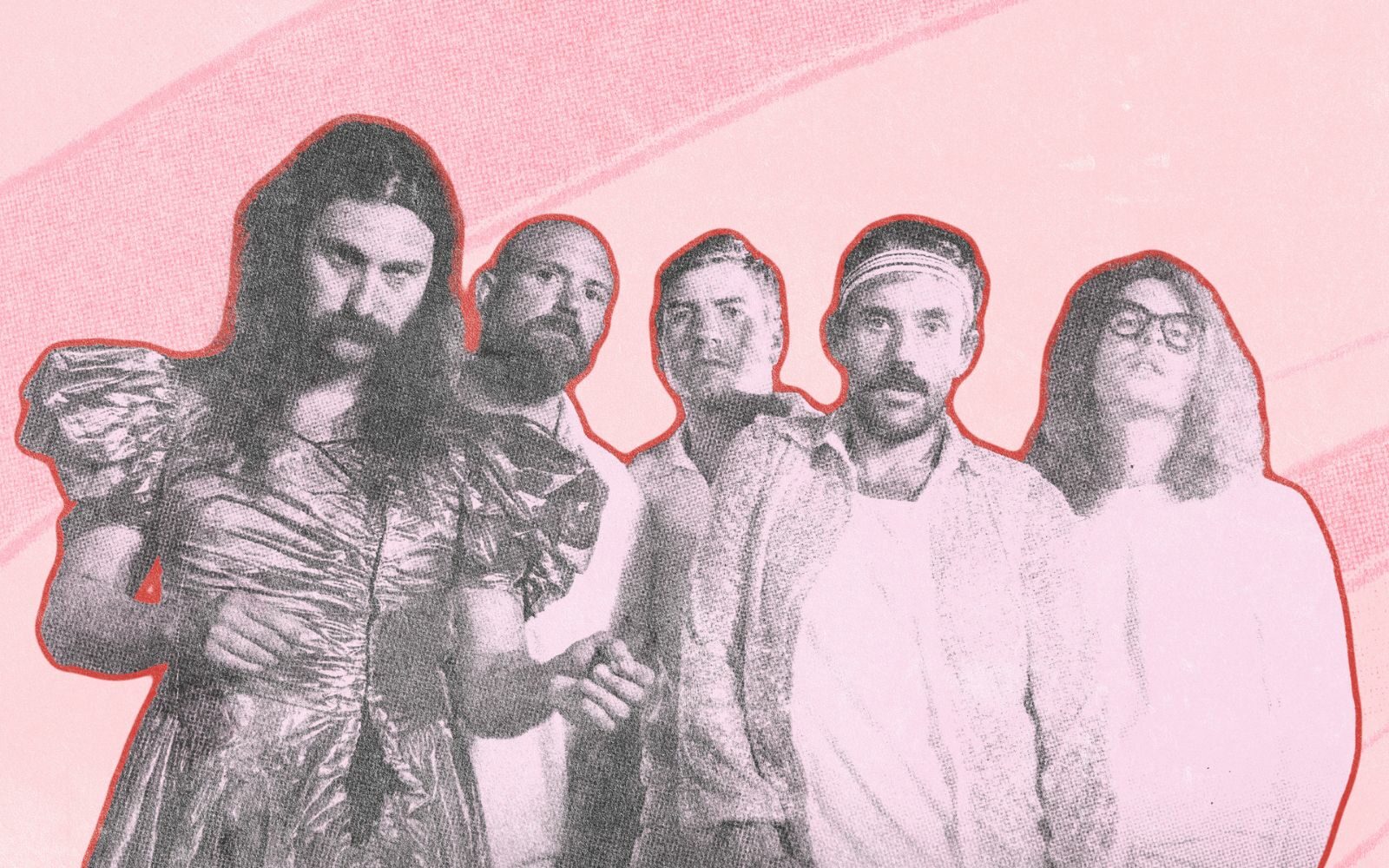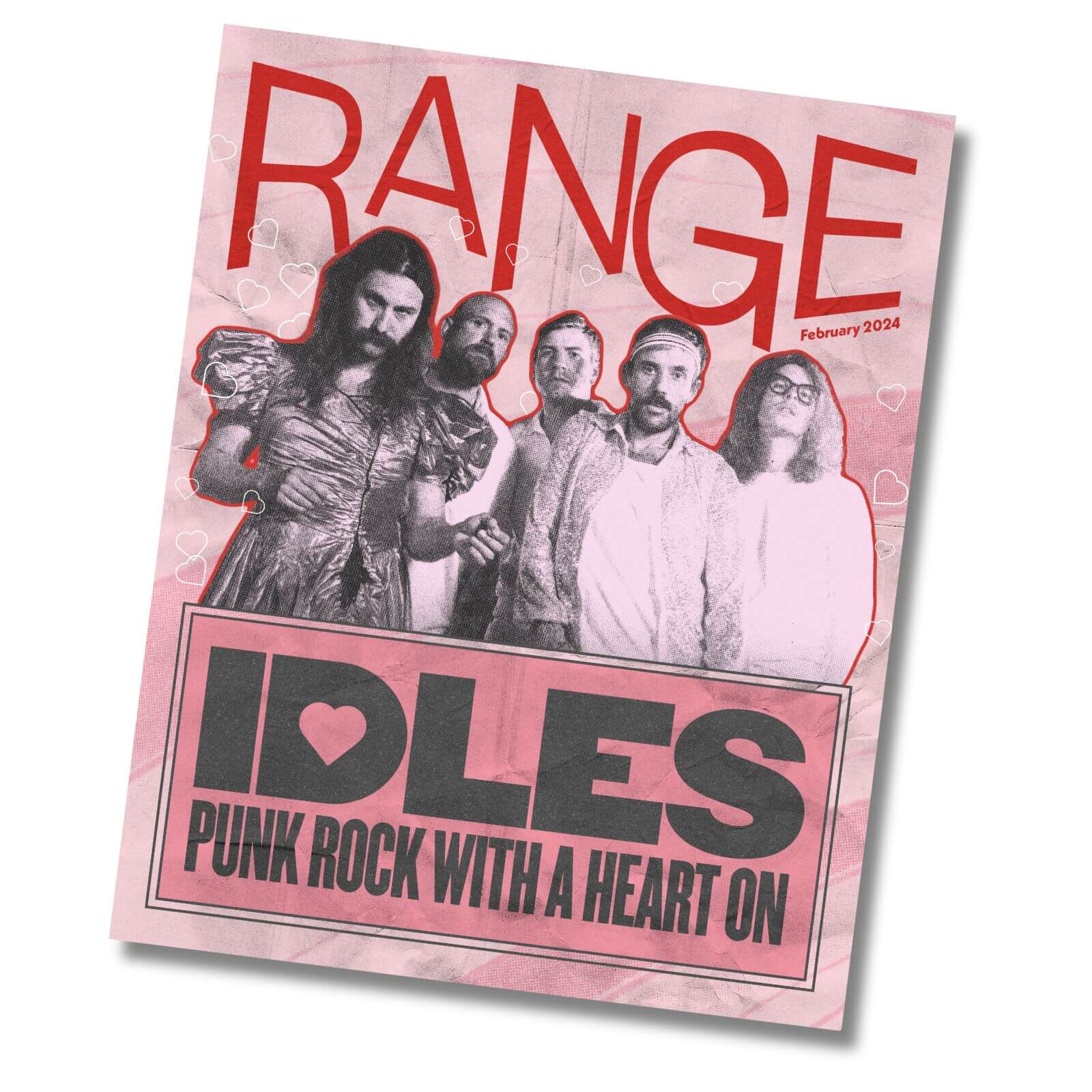By Cam Delisle
In the wake of her breakthrough third album, Through The Wall, the experimental-R&B auteur reflects on a career-defining year.

It’s odd to see Joe Talbot in such a cozy state. For anyone familiar with his Bristol-based post-punk band IDLES, images of an angry, bravado-driven, battle-scarred man looking for a fight might come to mind. Yet right now, over a glitchy Zoom screen, he looks unbelievably warm and wholesome. He’s wearing a knit cardigan sweater that covers his tattoo-plastered arms, a beanie, and thick-framed reading glasses. Under the dim orange glow of the room filled with bookshelves and plants, Talbot looks more like a reclusive scholar set to pen the next great bestseller than the frontman of a heavy, vertigo-inducing punk act.
“I’m just very grateful for what I have, ‘cause I didn’t have it for a very long time,” he says in a hushed, grizzled voice. “So recently, I’ve just been manifesting gratitude by working hard, sustaining a sense of beauty and love, and just trying my best.”
Of course, he’s talking about the success of IDLES, which is soon releasing its fifth full-length, TANGK, but he’s also talking about being a father to his four-year-old daughter. Yes, whenever he’s not emitting arcane, combustible energy during an IDLES show, Talbot is in daddy daycare mode, making meals he can freeze so his daughter has “healthy options to live after a long day.” Sometimes, he finds moments, like today, to write a song, but his true purpose is one he wouldn’t trade for anything in the world.

“You realize just how many fucking things you do for that person,” he says. “How much you love them, and what you do to make sure they’re safe, loved, and comfortable. She doesn’t care what the house looks like. She just needs to know that she has my undivided attention and that she’s safe in my arms.”
It seems like Talbot is at peace now, brimming with gratitude and hope, but it wasn’t always like this. Many of the themes within IDLES albums come from a place of personal trauma for Talbot. The band’s debut studio album, Brutalism (2017), was about mental health and the passing of his mother, whom he cared for after she had a massive stroke while IDLES was writing the album. While his mother was slowly dying, he would care for her five to six days a week in his birthplace, the country borough of Newport, Wales, commuting back to Bristol for band practice and his city DJ gig. He resented the situation, and to numb his emotions and reality, he fuelled it with alcohol and drugs. He says he was a miserable person, “the worst of the worst.”
Next came the critically acclaimed Joy as an Act of Resistance (2018), which dealt with topics like toxic masculinity, British racism, and the death of his stillborn daughter, Agatha. The latter was something Talbot dwelt on for years, initially hesitant to put into a song. But he eventually did, woven into his narrative lyrical style of visceral vulnerability—something he’s been praised and chastised for since day one.
“I’ve always got something to sing about and I’ve always got music to make. All you need is a beat,” he says. “Some people will like it and some won’t and that used to bother me, but it doesn’t anymore. Fuck, you don’t need that. I can just bark at you right now and call it a song ‘cause my expression is my expression.”

Talbot had a rough childhood in Devon County’s Exeter before eventually moving back to Bristol and forming IDLES. His dream was to be an actor, but Exeter was a bleak place “full of violence, because a lot of bored people were frustrated with their life and had nothing else to do.” He doesn’t look back on those days with positivity. Talbot will tell you that he didn’t live in Exeter—he survived it. “It was shit. It was just not a very good place to live,” he says. “Just a place without any culture or vibrancy to it. Lots of daily fighting and anger, sometimes repressed—or not.”
After moving to Bristol with IDLES bassist Adam Devonshire (Dev), Talbot remembers a palpable “sense of excitement” in the air. The Strokes had just come out with Is This It, an album that sent a raucous rumble throughout the Bristol music scene, spawning new indie bands every day.
“It was the gold rush of indie music and it was fucking magic. There would be loads of shows every night and it was very cool. It was inspiring until all the beautiful people came and ruined the club nights,” Talbot says with a straight face. “Then it became a bloated scene full of posers who looked bored on stage. It was all about looking good and all the bands became a bunch of clothes horses.”
Talbot and Dev were sick of it, wanting something with “vibrance and real feeling.” They would have a few drinks in the neighbourhood pub Dev worked at and, upstairs, experiment with a thundering bass guitar and a drum machine as Talbot would scream into a microphone. Soon after, they met lead guitarist Mark Bowen, and by 2015 they had a core lineup with drummer Jon Beavis and rhythm guitarist Lee Kiernan.
They’re still a ridiculously hard-working band full of ambition, touring the world every year with hundreds of dates, but a decade ago, IDLES was a machine. Each member worked full-time 60 to 70-hour-a-week jobs, but still practiced for their bombastic live show. They toured in a van with a hole in its roof for five years, crashed in parking lots under garbage bags, and played shows for exposure. All the while, Talbot was a full-time care worker for adults with learning disabilities.
“That job made me realize how lucky I was,” Talbot says. “A lot of the adults had learning difficulties or mental health issues. There were schizophrenics, severely autistic people, some completely nonverbal. Just beautiful human beings trapped in bodies that wouldn’t allow them to be.”

The experience is still an important one for Talbot that feeds into his lyrical themes. “Some of the women working there have been there all their life and just seeing tiny increments of progression with the adults over years and years and years—that’s all they could ask for, and that was fucking beautiful to see. You saw that you made a change and that was really cool. It made me more reflective and patient with the world.”
And Talbot needs patience. Being in a world-touring band that travels to developing and rich countries alike, he constantly sees injustice in the world. This feeds into the lyrics of every IDLES album, right down to tracks like “Gift Horse” on the upcoming TANGK, where Talbot bellows a hearty “Fuck the King!” towards the outro.
“Injustice is everywhere,” Talbot sighs while adjusting his beanie. “Our government is corrupt. It’s fascist. It’s dismantling our national health service, and it’s attacking the poor head-on with famine. It’s sanctioning the murder of Palestinians as we speak. It’s sanctioned the murders of Irish, Indians, Pakistanis, Africans, fucking Europeans — everyone. We’ve gone around the planet in the name of the Bible massacring cultures and the people within them. So I don’t have to look very far to see injustice anymore.”
When a band reaches the level of fame as big as IDLES, there will always be people looking to criticize them. Some have called Talbot’s egalitarian lyrics “disingenuous” in Reddit threads, while even fellow bands like Nottingham’s Sleaford Mods have looked to stir the pot by publicly questioning IDLES’ authenticity. And while that used to bother Talbot, he no longer has time for it, or what he calls the “emotional chaos.”
“Now being a dad, I have no lack of empathy and I have a want for change,” Talbot says. “I can try [to] move that change by coming at the world with love and being a good parent. And I don’t want to overcomplicate that love. I want it to be physical, and I want it to come out however the fuck I want it to come out.”

By Cam Delisle
In the wake of her breakthrough third album, Through The Wall, the experimental-R&B auteur reflects on a career-defining year.
By John Divney
Still processing their debut album, Vancouver’s latest art-rock unit proves collaboration is the new rebellion.
By Cam Delisle
The elusive Kevin Parker soundtracks the self-medicated search for bliss on his fifth album, Deadbeat.